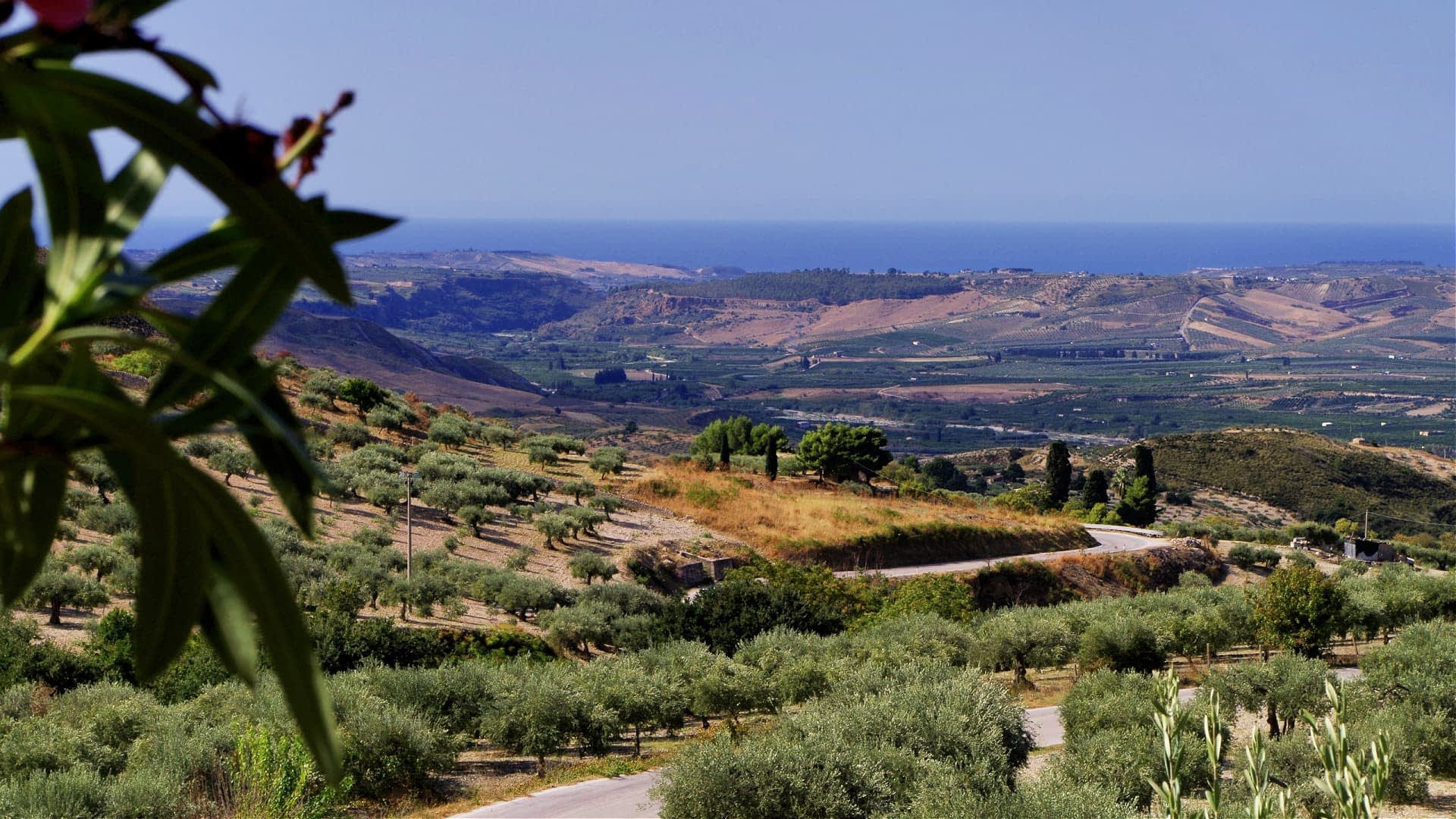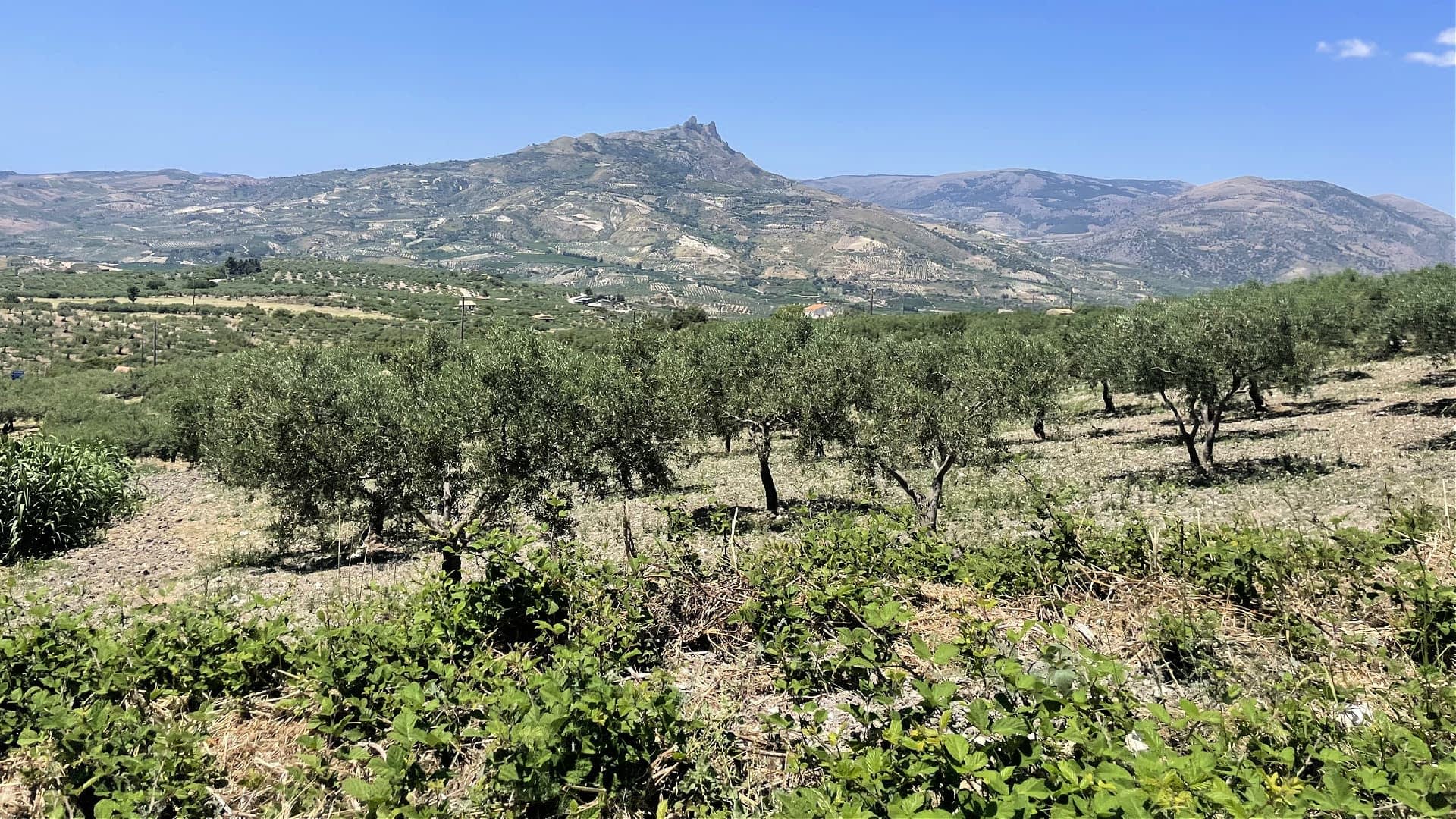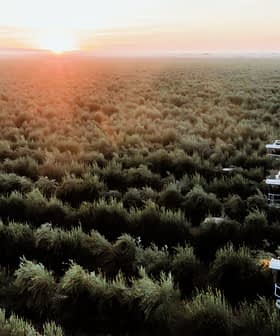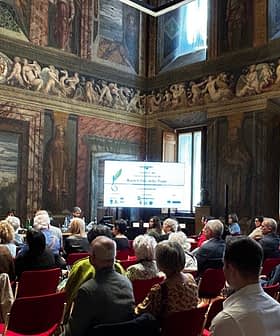Loco Galbasa is a young brand that represents the fulfillment of a dream long pursued.
In a corner of Western Sicily nestled between the mountains and the sea, the two cousins, Marco Gagliano and Sandro Domenico Musso, created the quality-oriented project named after the country district Galbasa in the village of Villafranca Sicula, where they organically produce the namesake Biancolilla monovarietal.
Quality cannot be an end in itself and (leads) us to have an ethical approach to running our company. Indeed, we farmers can play a key role in addressing the impacts of climate change with proper soil management.
“It all started with my great-grandfather,” Musso told Olive Oil Times. “He had migrated to the United States, and when he returned, he purchased some land with the savings of several years of work and sacrifice. He recovered the olive trees, which the previous owners had abandoned, and in the early 1960s, my grandfather and great-uncle founded the company.”
Over time, the estate has been expanded and now includes 20 hectares of ancient olive groves, at the heart of which lies a farmhouse dating back to 1860, now under renovation.
See Also:Producer Profiles“When Marco and I were kids, we fantasized about working on this land together one day and selling our own produce,” he said. “When I took over the management, we could finally realize our childhood dream.”
Gagliano echoed Musso’s sentiments: “I remember those chats during barbecues at night in our teens about how to run our future business on this beloved land. Today, the results and satisfaction obtained with our extra virgin olive oil are indeed a lifetime dream come true.”
After some years of improvements and experimentation, they established the company. As they launched their first product on the market, they also participated in the NYIOOC World Olive Oil Competition.
“Attending this world-renowned competition helped us showcase our company to a wider audience,” said Gagliano, who is in charge of marketing. “Receiving an award at the NYIOOC is a great calling card that makes us recognizable and gives a quality guarantee to those seeking information on our product, especially since we started to sell it in the United States too.”
The organic monovarietal Galbasa originates from rolling hills at altitudes of 400 to 450 meters, where the olive trees thrive next to Mediterranean fruit plants, such as pears, arbutuses, figs, mulberries, prickly pears and plums. A small oak forest is also located on the estate, from which, on the clearest days, one can even spot Pantelleria Island.

On a clear day, it is possible to see Pantelleria Island from Loco Galbasa’s groves on the coast of western Sicily. (Photo: Loco Galbasa)
“Our groves are an integral part of this beautiful landscape,” Gagliano said. “They overlook the valley where the Verdura River flows, which is studded with a myriad of trees of Ribera orange all the way to the sea. Hence, we plan to launch a line of orange blossom honey, which the bees present on the property will produce.”
The Sicilian farmers have introduced pollinating insects to improve biodiversity, a mainstay of the company’s vision. Several varieties compose the olive orchards, where the prevalent Biancolilla is interspersed by the autochthonous Cerasuola, Giarraffa and Moresca varieties and neglected ones such as Murtiddara, Bottone di Gallo and Passulunara, for a total of almost 5,000 olive trees, most of which are centuries old.
“With our world-class extra virgin olive oil, we succeeded in giving these plants the value they deserve,” Musso said. “We have a special bond with them and with this territory that can still express so much as we strive to carry forward our entrepreneurial vision with a conscious commitment and a forward-looking approach that leans on respect for them.”
Strong environmental awareness has guided Gagliano and Musso in creating the company. It continues to steer its business choices, including becoming a member of a producer organization that set up a certified eco-sustainable production process.

Deep roots of centuries old trees mean Loco Galbasa does not need to irrigate its organic groves. (Photo: Loco Galbasa)
“The commitment to sustainability is a mission for our company, which is experiencing the current weather challenges and wants to play its part in the global effort of mitigating the effects of the climate crisis,” Gagliano said.
This year, they had to cope with several weather issues, starting from heavy rain in winter. This was followed by an unstable but dry weather period when the olive trees needed more water. From the end of May to early June, there were large amounts of rain and not much wind, which is a non-ideal condition for pollen spread, causing problems for fruit set.
“We had an extraordinary attack of olive peacock spot and also Cercospora leaf spot, the latter not seen for at least 15 years in our olive grove, which were both favored by the humid climate in the late spring,” said Musso, who oversees the agronomic aspects of the farm. “Then, the olives showed a delay in ripening, which also occurred to the other crops of our farmer neighbors.”
“These are all signs that tell us that quality cannot be an end in itself and lead us to have an ethical approach to running our company,” he added. “Indeed, we farmers can play a key role in addressing the impacts of climate change with proper soil management, which also implies a rational use of resources.”

From its centennary trees, Loco Galbasa earned a Silver Award at the 2023 NYIOOC. (Photo: Loco Galbasa)
Thanks to their age, the olive trees all over the estate do not need irrigation. Furthermore, the farmers apply the technique of green manure that helps to increase the organic content and improve the structure of the soil, which becomes more able to maintain humidity – an ideal combination of factors that allows them to save both water and energy needed for irrigation.
“We practice grassing from fall until April,” Musso said. “Then we mow, leave the biomass on the ground and in late spring, we incorporate it in the soil with a superficial tillage with a disk or cutter. This is beneficial for the plants, which have arrived at this harvest season in good shape after some months of drought, with no sign of water stress.”
In October, they started to harvest the olives, which were crushed in the latest generation two-phase mill near the farm. While the state-of-the-art machinery allows them to bring out the best from the fruits, the short drive to deliver them to the facility helps cut energy costs and carbon emissions.
“Our goal is to create a premium product that expresses the passion and values on which it was founded,” Gagliano said. “In our opinion, being eco-sustainable cannot be anything but an ethical imperative and should be the essential foundation for current and future quality productions.”
Musso echoes him: “Today, we aim at maintaining a high quality over time while continuing to improve ourselves, always taking care of the territory where our precious olive trees grow. We firmly believe that quality can only come from a healthy land, and the results we are achieving tell us that this is the right perspective to look at the future.”









